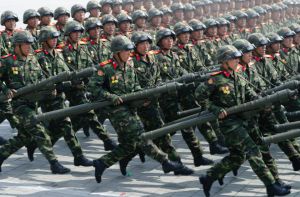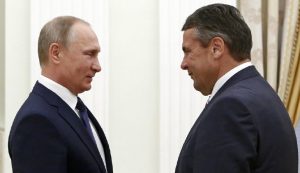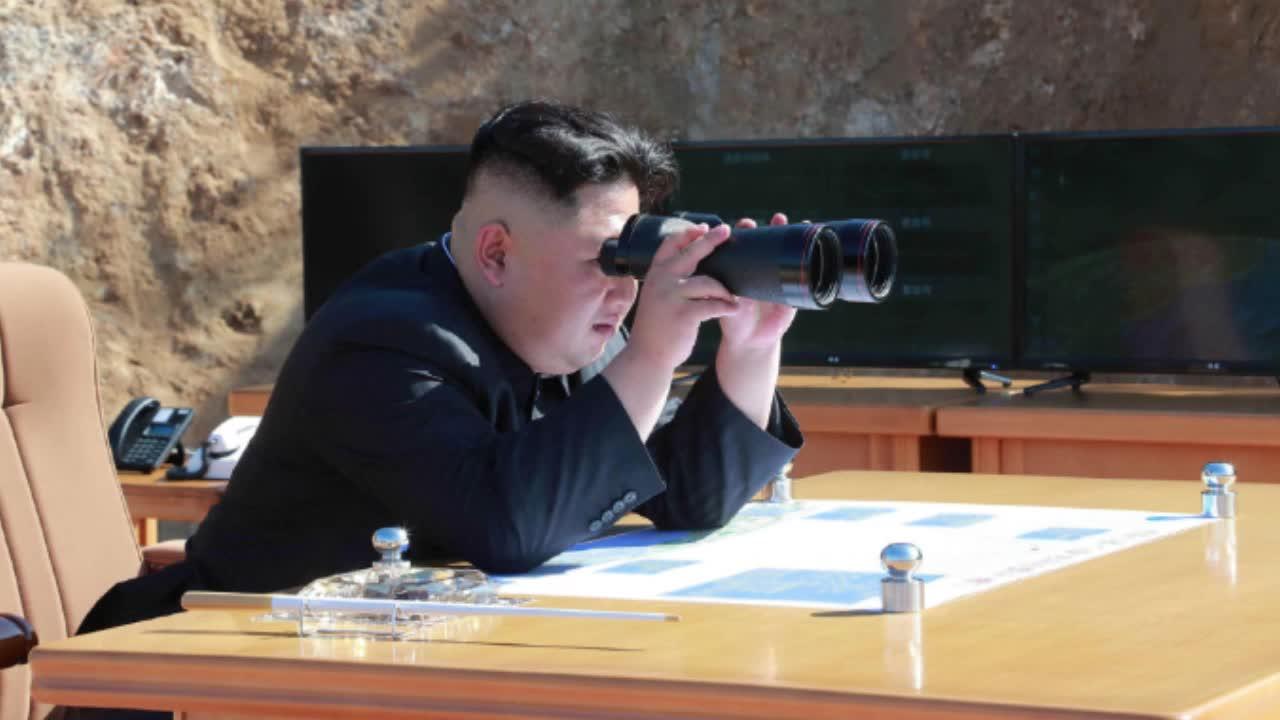
Could the UK based newspaper be right?
The world is on edge as the danger of thermonuclear escalation looms. All the indicators point at an American nuclear strike on North Korean nuclear sites as impending. Not only are American military chiefs saying such an option is no longer unimaginable, the American president is saying so too. Although like Iraq, even the military chiefs are as sure as every other experts that, in the words of General Mark Milley “A war on the Korean peninsula would be terrible”. Both Joseph Dunford, the Joint Chiefs of Staff and the Air force chief, General Paul Selva, are using almost the same vocabulary, updating each other, saying military options against North Korea are though not ‘unimaginable’ but would be ‘horrific’ and loss of life unlike any war since World War II.
The military chiefs must know because there is no likelihood that American reconnaissance and surveillance would successfully locate North Korean silos and neutralise that country’s nuclear capability with one neat strike. North Korea is not likely to keep her silos in one point permanently as for such to be possible. But even if a single surgical strike were to successfully paralyse North Korean arsenal and, therefore, protect South Korea, Japan and US cities from the horror of a North Korean hit back, what of China’s sensitivity? Is the world safe from China’s interpretations and misinterpretations of American moves?

Might this sort of joke reflect reality?

Deadly combatants or dummies of a dictator?
At the end of the day, the same questions that were posed on Iraq are all here again. Can the US effect this mission without leaving the world with a burden even more terrible than the globalisation of terrorism that its invasion of Iraq in 2003 has occasioned? Is there an unspoken consensus of the international community on how best to deal with the domestic and security challenge perceived from North Korea? Is the military option the move of an unpopular American president seeking to raise his rating? Is North Korean leader a patriot or a mad man or, better still, a mad patriot? Or is this the means by which God is said to have made Americans elect a Donald Trump so that the country could be humbled? Can the Americans tolerate a president who brings upon them the psychological stress and the actuality of nuclear strike on one or two cities from North Korea? This is a reality General Milley attested to in saying that “… a nuclear weapon detonating over Los Angeles would be terrible”. He is echoed by General Dunford saying that what he could not imagine is allowing capability that would allow North Korea’s nuclear weapon to land in Denver, Colorado in the US, for example.
The current stiff brings back the controversy over nuclear capability. Most of humanity believes that the destructive capacity is so gargantuan that no nation ought to have it. But the specialists would say the codes by which it could be launched is such a complicated system there is nothing to fear. In fact, the members of what Carol Cohn call defence intellectuals and who she defines as those who “create the theory that informs and legitimates American nuclear strategic practice” do not find anything strange or amoral in it. They have even got a sexualised discourse of the obliteration it can wreck in its wake. Carol Cohn’s 1987 essay titled “Sex and Death in the Rational World of Defense Intellectuals” is such a great read.

This book says it all: there’s no guarantee of safety in managing nuclear arms
But human error is always a reality in all realms. Each time that the world came closest to a nuclear exchange, it was accident. This has not changed, both before and after the Cold War. Eric Schlosser, American journalist and author of the best seller, Command and Control, told a predominantly student audience at the University College London in November 2014 that errors stemming from carelessness, misreading, wrong instructions and experimentation happened and keep happening and that the saving grace has always been the discretionary decision of the officers on the spot not to press the button. This is applicable to both the defunct Soviet Union and the United States during and after the Cold War. If a Soviet Colonel had not disobeyed orders and exercised discretion at some point in 1983, the world today, if at all, would have been a completely different world. It is actually shocking that the world has internalised living with nuclear weapons, the most risky and the most useless of humanity’s possession. So useless that when Obama said the world should de-nuclearize, the Nobel Peace Committee quickly awarded him the price in 2009 just a year into his first term. Critics disagreed but it also spoke volumes about how highly undesirable nuclear weaponry is held in high quarters.

Can the world read the lips of the Chinese and Russian presidents? These are two of the nine nuclear armed powers, the other seven being the US, UK, France, making the five permanent members of the UN. The rest are India, Pakistan and North Korea. Israel has but it has no nuclear status in the discourse
In International Relations and in diplomacy, there is one thing though about which there is a consensus. It is that nuclear weaponry has kept the peace. It has kept the peace to the extent that nuclear armed nations have not fired at each other because any nation that presses the button knows the other guy is going to hit back. There are no chances that the first strike will locate and knock off the other country’s nuclear facilities as for anyone to talk about victory or defeat. The question that scholars then ask is why doesn’t every nation have it if it is the peace keeper? That poser brings in the politics of nuclear armament and disarmament. It is part of the structural problems of the global order that some countries have it but make themselves judge over who may enter the club and who may not even though all nuclear arming is dangerous. The reality that nuclear capability is simply dangerous for humanity, irrespective of who has it has become the basis of the advocacy for why nobody should have the nukes.

The much feared North Korean Hwasong-14 Inter-Continental Ballistic Missile, (ICBM)
 This is the task that the global peace movement made up of conscious and unconscious members are pushing and making so much progress. As at today, ICAN (the International Campaign to Abolish Nuclear Weapons), the global forte coordinating this campaign for nuclear disarmament symbolises that effort. It has won the power of majority in terms of member states of the United Nations – over 160 out of the 183 or so UN members. What it is still to win are the nuclear armed states as far as coming off from the beatification of insanity called nuclear armament is concerned. If the world escapes a horrible nuclear fiesta in this US attempt to contain North Korea, then de-radicalising the nuclear armed states might even become more urgent than de-radicalising terrorists. This is because there is no guarantee that terrorists won’t somehow get hold of the nukes. That would be too terrible a scenario to contemplate.
This is the task that the global peace movement made up of conscious and unconscious members are pushing and making so much progress. As at today, ICAN (the International Campaign to Abolish Nuclear Weapons), the global forte coordinating this campaign for nuclear disarmament symbolises that effort. It has won the power of majority in terms of member states of the United Nations – over 160 out of the 183 or so UN members. What it is still to win are the nuclear armed states as far as coming off from the beatification of insanity called nuclear armament is concerned. If the world escapes a horrible nuclear fiesta in this US attempt to contain North Korea, then de-radicalising the nuclear armed states might even become more urgent than de-radicalising terrorists. This is because there is no guarantee that terrorists won’t somehow get hold of the nukes. That would be too terrible a scenario to contemplate.



























